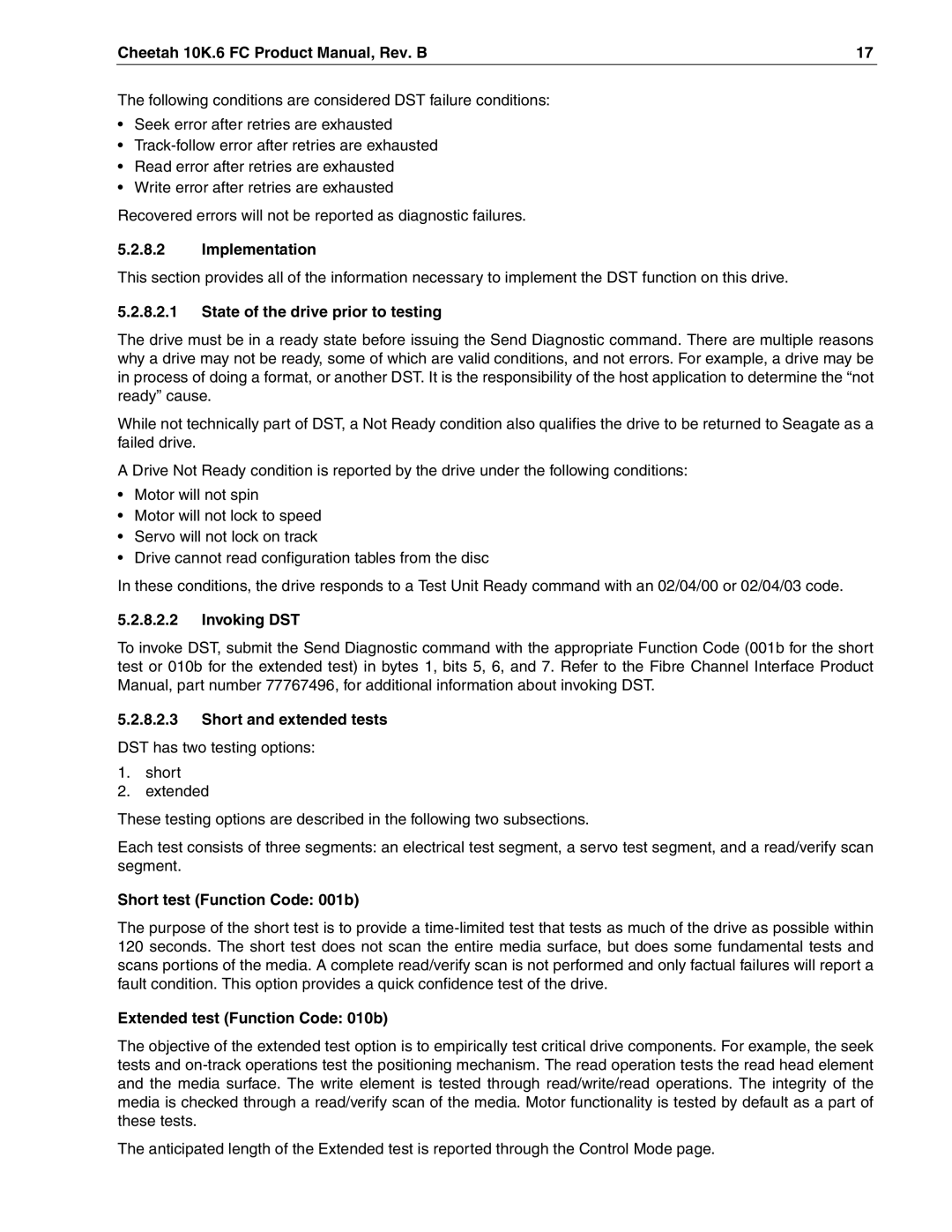ST336607FC, ST373307FC, ST3146807FC specifications
The Seagate ST373307FC, ST3146807FC, and ST336607FC are robust hard disk drives designed for enterprise environments where reliability and performance are critical. Each model offers distinct features suited to various data storage needs, reflecting Seagate's commitment to innovation in storage technology.The ST373307FC is a 73GB Fibre Channel hard drive that operates at 15,000 RPM, making it exceptionally fast for read and write operations. This drive employs a 4GB cache, enhancing its performance by allowing quicker access to frequently used data. With a 3.5-inch form factor, the ST373307FC is built for high-density environments, delivering reliable access to data. Its Fibre Channel interface supports high-speed connections, essential for data-intensive applications like databases and virtualization.
Next in line, the ST3146807FC offers a capacity of 146GB, also operating at 15,000 RPM. This drive features an 8GB cache, which significantly improves its data transfer rates, making it ideal for transactional workloads. The ST3146807FC is engineered to minimize latency and maximize throughput, ensuring that enterprises can access critical data swiftly and efficiently. Additionally, its rugged construction is designed to withstand the demands of continuous operation, providing peace of mind for businesses with strict uptime requirements.
Lastly, the ST336607FC has a substantial storage capacity of 300GB and shares the 15,000 RPM operational speed that characterizes this high-performance line. With a similar 8GB cache as the ST3146807FC, it offers excellent performance for read-intensive and write-heavy applications. The ST336607FC is also designed with enhanced thermal management features, supporting cooler operations in densely packed server environments. This model is particularly suited for applications such as data warehousing and online transaction processing, where speed and reliability are paramount.
Each of these drives utilizes advanced technologies like Native Command Queuing (NCQ), which optimizes the order of read and write requests. These features, combined with Seagate's reputation for durability and performance, make the ST373307FC, ST3146807FC, and ST336607FC excellent choices for enterprise applications requiring high-speed data access and exceptional reliability. In environments where data integrity and uptime are critical, these drives provide the robust performance necessary to meet demanding storage needs.
